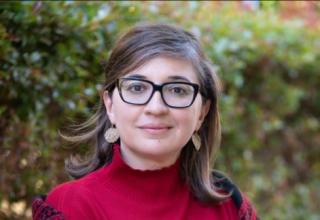
Berkeley’s Sociology Department is known around the world for its excellence in research and teaching. Our faculty advance cutting edge research and teach in most sociological specialities. Our PhDs are leaders in universities and research centers across the US and in many other countries. And our BAs populate the ranks of innumerable professions, bringing with them the skills and special perspective of Berkeley sociology.
We are proud to make these contributions from the world’s leading public university. At Berkeley, we combine intellectual rigor with a commitment to public service through our research, teaching, and service on campus and beyond.
For the past six decades, Berkeley’s Sociology Department has consistently been ranked among the world’s top sociology departments. Our graduate program is ranked #1 in the latest U.S. News and World Report, and our undergrad degree is currently the best in the US according to College Factual and features on Grad Reports’ Best College List 2020.

Prof. Einstein served graduate students as a model of prudence in remaining unfashionably true to the grand…
A Theory of Fields
Finding ways to understand the nature of social change and social order-from political movements to market meltdowns-is one of the enduring problems of social science. A Theory of Fields draws together far-ranging insights from social movement theory, organizational theory, and economic and political sociology to construct a general theory of social organization and strategic action. In a work of remarkable synthesis, imagination, and analysis, Neil Fligstein and Doug McAdam propose that social change and social order can be understood through what ...
Departmental Colloquium Series
Sanyu A. Mojola, "Death by Design: Producing Racial Health Inequality in the Shadow of the Capitol "
Monday November 3rd, 2025 at 2:00 pm - 3:30 pm
Blumer Room - 402 Social Sciences Building and via zoom
Abstract:
Why and how does racial health inequality persist and get reproduced? Throughout its history, Washington D.C., the capital of the United States, has had many of the nation’s worst epidemics, including maternal and infant mortality, homicide, heroin overdoses, and HIV/AIDS. And these epidemics have disproportionately affected African Americans. Starting from the city’s founding in the late 1700s until the present, and drawing from multiple sources, including archival and spatial material, Census, vital statistics and disease surveillance data, and life history and key informant interviews, this book illustrates how the city’s physical, social and policy design contributed to the production and reproduction of disproportionate death among African Americans.



